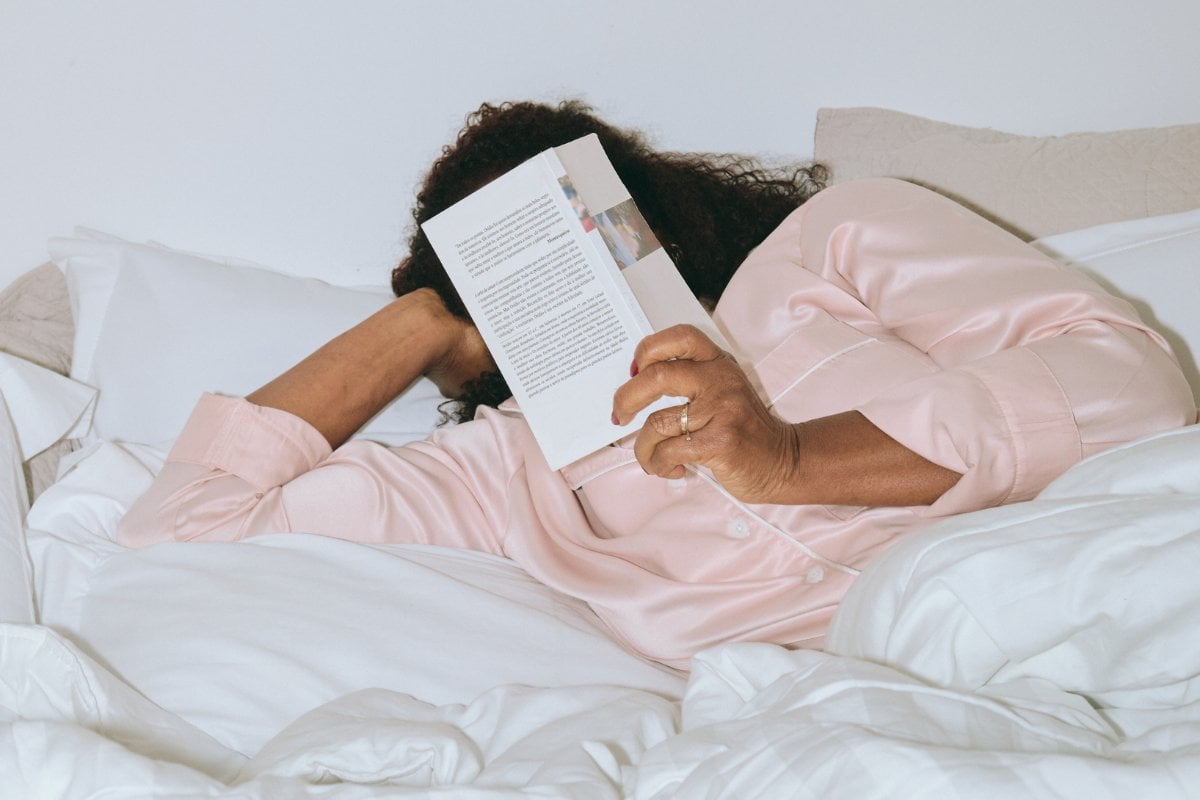
Every few months, the internet comes up with a new term for lounging around and doing nothing.
If you're on TikTok as frequently as I am, you would have come across videos about quiet quitting, bed rot and bare minimum Monday. These buzzwords are exactly what they sound like: instructions on how to be lazy without getting caught.
And look, I'm not completely opposed to some of these ideas — quiet quitting for example means just doing your job instead of going above and beyond, and I respect that. However, putting a name to everything is getting a little... old.
Especially when I discovered that the new term Gen Z is obsessed with is hurkle-durkle.
No, you're not hallucinating and yes, you read correctly.
Watch: How to spot and combat burnout. Post continues below.
TikTok creator Chelsea Alysa (@groundedinneutral) shared a video demonstrating how to "hurkle-durkle", which just means staying in bed past the time you're supposed to be up.
The term originated from the word hurkill, meaning to crouch, and hurklin, meaning to stagger.
@groundedinneutral who else loves a hurkle durkle? ☁️ 🛌 Here I was calling it “laying in” completely unaware that there was this fun phrase floating around! It’s one of my favorite things to do on a weekend morning but sometimes I’ll wake up early on a weekday just to hurkle durkle. ps. It’s still a true hurkle durkle if you get up to bring coffee/breakfast back to bed. It’s actually ideal. Only a couple days away from a weekend hurkle durkle! ▫️follow @groundedinneutral for more cozy home content ▫️shop my feed on LTK & Amazon Storefront #neutralbedroom #bedroomdecor #bedding #makethebed #cozyhome #cozyvibes #neutralhomedecor ♬ original sound - Kira Kosarin
So... pretty much the same thing as rotting in bed.
"Just thought you guys should know that the Scottish have a word for laying around in bed," said Chelsea. "It's called hurkle-durkling.
"I do be hurkling, and I do be durkling."
De-productivity trends seem to be all the rage on the internet lately — there's living the 'soft life', which reminds us to live slowly and to remove ourselves from hustle culture. Some film themselves rejoicing over cancelled plans and longing for the pandemic lockdown, a time when staying in and doing nothing was acceptable.

